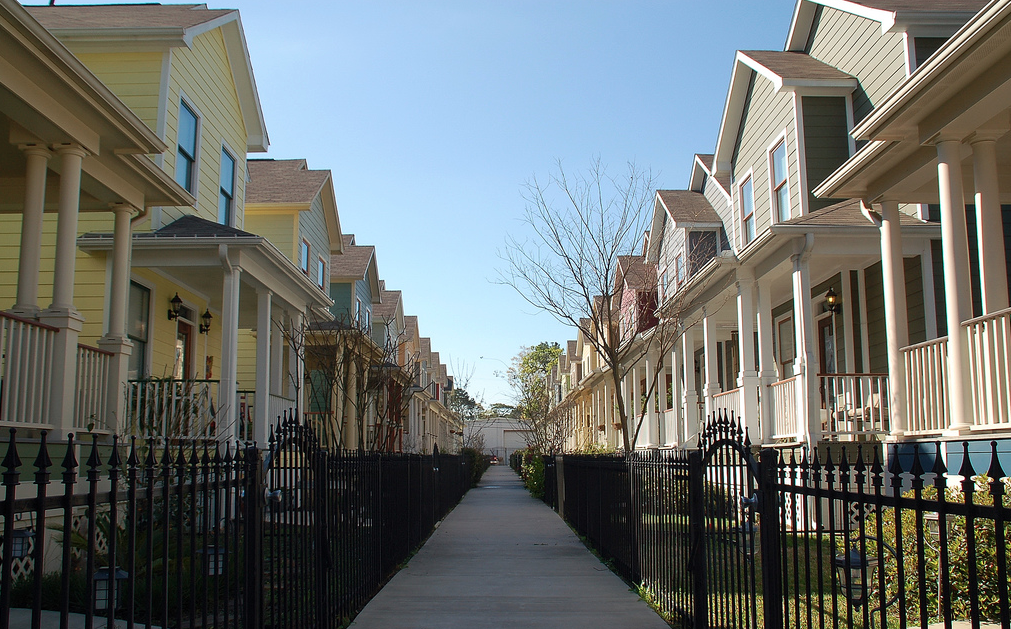As the country's housing markets continue to recover from the Great Recession, cities in the Sun Belt are leading the way, at least according to one measure created by market research group RCLCO Real Estate.
Using several years worth of single family home sales and construction numbers, as well as population and employment growth data, among other metrics, the group forecasted the next 12 months of market activity, ranking the top 25 most active markets relative to each other. Of the top 10 metropolitan areas, eight are in the Sun Belt, led by Orlando, Austin, Dallas and Phoenix.
"If you look at the top 10, it highlights those (markets) that have been strong from the get-go and continue to have a good outlook like Austin and Raleigh and Denver," said Todd LaRue, a managing director at RCLCO and one of the authors of the housing momentum report, on the cities that recovered quickly after the recession. "And then you have these other ones that were slow to recover that are now hitting their stride, and that would be Orlando, Dallas, to some extent Phoenix, Jacksonville, Atlanta."
Houston, notably, is absent from both this lists.
The rankings are not meant to indicate which housing markets are the biggest or strongest overall; rather, they rank the markets relative to their own recent performance and to each other, given estimates for employment, population and housing growth in the next 12 months.
Cities like Atlanta, Dallas and Phoenix were hit hard by the collapse of the housing market and left with large inventories. But, LaRue said, the report shows that, to some extent, the markets there have stabilized and are poised for growth in the next year.
Houston, however, ranked 21 of 25 as it continues to deal with the fallout of its oil slump. LaRue said Houston's relatively low ranking is reflective of its recent slowdown locally compared to its strong activity after the recession. "Houston is actually probably doing more permits and single family home sales than most of these markets -- but relative to its past performance it has less momentum," said LaRue.
The report comes after new 2015 estimates from the census showed a record increase in median incomes nationally and strong growth across much of the country. But the housing momentum rankings also highlight a troubling finding: the new home market is out of reach for many would-be first-time homebuyers.
"Home prices have been accelerating at a faster rate than incomes," said LaRue, "and that's what's getting homes out of reach for many buyers." In Texas, part of the reason for that is a labor shortage. "The labor market in Texas in construction has not recovered to what it was before the downturn, so that's been a big constraint," he explained. Some have posited that increasing home prices and the construction labor shortage are the result of a net out-migration of Mexican immigrants from the United States, said LaRue. Indeed, more Mexicans left rather than came to the United States between 2009 and 2014, according to the Pew Research Center.
"Our view is that Texas, one of its greatest economic development advantages over other places, is its quality of life and affordability," said LaRue. But with home prices increasing, cities like Austin and Houston are confronting a lack of affordable housing. "It has become and issue in Houston, which has really never been an issue before," he said. LaRue noted that Houston's strong position after the recovery attracted many newcomers, who quickly bought up any excess inventory. As demand continued, supply failed to keep up and prices shot up, about 8 to 10 percent annually since 2010, which is very unusual in Texas.
Going into the next year, the biggest metric hurting Houston's housing momentum is its sluggish job growth. "Employment clearly has slowed significantly," he said. "This actually may be good for Houston that it has slowed a little bit so there can be some catch up and some of the price increases [can] moderate."


